-
About
- About Listly
- Community & Support
- Howto
- Chrome Extension
- Bookmarklet
- WordPress Plugin
- Listly Premium
- Privacy
- Terms
- DMCA Copyright
- © 2010-2025 Boomy Labs

 Corinne Campbell
Corinne Campbell
Listly by Corinne Campbell
Here's a crowd-sourced list of Australian Education blogs worth reading. Please add your recommendations or tweet them to me @corisel
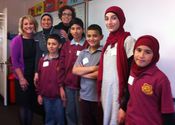
One day in the September holidays, we met at the Hilton for lunch, just the two of us. My husband called me and asked if we were still there. He was picking me up and told me it would be good if we finished up soon and he asked if Helen was ok.

When is Australia going to be come a nation? In terms of education, Australia is both world-class and unequal. Both innovative and parochial. Both research-based and politically whimsical. Our states operate only nationally because of funding that flows - or doesn't - from federal coffers and always does with a set of footnotes that cause flags to be raised, reports to be redesigned and curricula adapted.
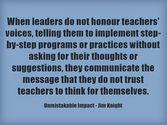
At my school, we are currently in the throes of implementing a new 'instructional model'. One of the interesting ideas that has come out of the whole process is that instruction is always built upon what Robert Marzano calls a guaranteed and viable curriculum.

At College by Kids, the kids are the teachers. Content is created by kids, for kids. Kids learn new things from other kids & kids create stuff to teach other kids.

It's report season. I should be finishing my reports and reading the reports of my team. I'm doing neither. I will pay for that later, but for now I 'need' to explore the issue of data walls. To be honest, I was a bit surprised to find myself in a very robust discussion on the weekend about these seemingly innocuous walls.

"The reasoners are like spiders who make cobwebs out of their own substance" Francis Bacon. This blog is about educational research. The quote is appropriate. Views are my own and do not represent any organisation. Follow @websofsubstance (by Harry Webb)
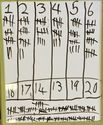
Authentic Inquiry Maths - how it plays out in the primary/elementary school context

Learning about learning collaboratively (by Melissa Phillips)

Since retiring and becoming a twitter tragic over the last 2 years in my retirement what has struck me most is the extensive amount of debate and focus on feminist issues: gender justice; gender injustice; the importance of and the irrelevance of feminism in social media.

John Hattie, the author of the much quoted Visible Learning was recently appointed by the Federal Government to the Chairmanship of the Australian Institute for Teaching and School Leadership. In today's Australian Newspaper, an article by Jennifer Buckingham from the Centre for Independent Studies said, Last week, Hattie indicated things were going to change in teacher education under his watch.

Back in September I had an enjoyable Creative Conversation with students and adults who could add to the thinking about that problem space, Rooms 11-14 @materdeiwagga. In mid October, I shared the feedback from the creative conversation with teachers who were interested in addressing the challenges of 'that problem space'.

December 12, 2014 · 10:43 am December 5, 2014 · 11:20 am I haven't featured a flash mob in quite awhile for a School's out Friday post, so time for some unbridled joy that comes from indulging in your groove thing. Well, the next best thing really - watching people indulging in their groove thing!
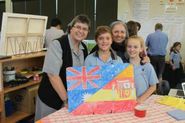
On Monday night I had the pleasure of hearing Noel Pearson deliver the annual Bishop Manning lecture. Pearson is founder of the Cape York Institute for Policy and Leadership. In discussing the complexities and challenges facing indigenous communities, Pearson explained that he saw himself as a radical centralist - someone committed to left wing objectives through right wing policies.
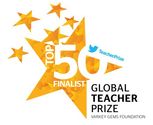
Tom Bennett's name appear. He is the engine behind researchEd which we are hosting in Sydney in February. I also wasn't surprised to see Michael Soskil appear. I met him in an Edcamp breakout at ISTE this year and I was awed by his determination to change the world.

Having seen a few versions of the 11 questions idea floating about, I have had the pleasure of a brief insight into people beyond their tweets and their bio, so when Mr Woodman ( www.andrewwoodman.com), put me on the spot I thought why not.

Sharing the possibilities of technology to redefine learning

I've been spending some time puzzling over why I love to follow some Twitter accounts but others, even though they are sharing and promoting great ideas, I find a little off-putting. I've realised that for me, it comes down to word choice. Accounts that I enjoy following tend to use reflective and inclusive language.
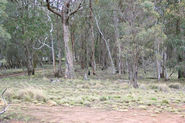
By Kevin Wheldall, Anne Castles and Mandy Nayton [Note: This article appeared in a more abbreviated form in The Conversation: The word dyslexia seems to arouse strong emotions, both for and against, and has a chequered history.
